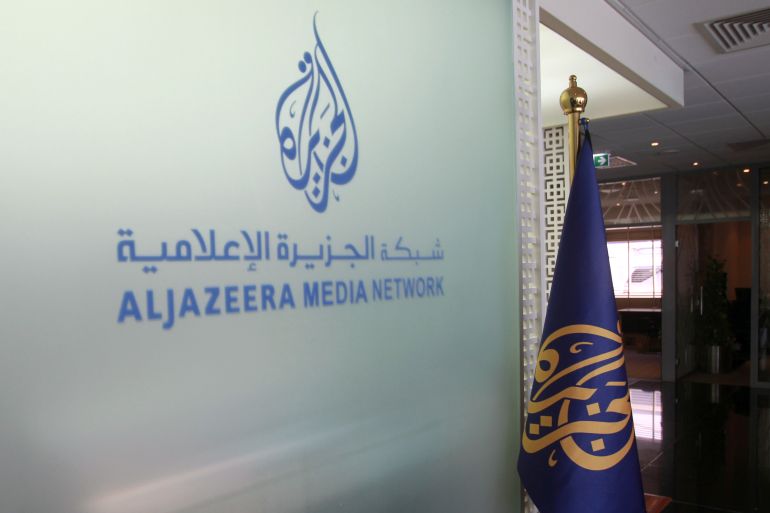Sudan withdraws licence of Al Jazeera Mubasher
Sudanese authorities say the decision was taken following the channel’s ‘violation of the terms’ of licensing.

Sudanese authorities have withdrawn the broadcast licence of Al Jazeera Mubasher, the channel has said.
In a statement on Sunday, the Qatar-based media network said authorities also revoked the accreditation of two of its journalists in the country.
Keep reading
list of 3 itemsNew US Africa envoy to visit Ethiopia and Sudan
Sudan security forces fire tear gas at anti-coup protesters
“The Ministry of Culture and Information revoked the accreditation of Al Jazeera Mubasher’s journalist, Mohammed Omar, and photographer, Badawi Bashir, under the basis of ‘the un-professional coverage of the Sudanese affairs’ and the reporting of ‘incorrect information that damages the country’s interest and social fabric”, it said.
“Al Jazeera condemns the interference with its duty to convey fair and objective coverage of events in the country and to allow its journalists to operate unhindered and to practise their profession.”
“The Network views this as an attack on press freedom as a whole and calls on international human rights and media organisations to condemn this infringement of journalists’ safety.”
Sudan’s ministry of culture and information said in a statement on Saturday that the decision was taken in response to the channel’s “unprofessional conduct”.
It said the channel’s coverage took aim at the “social fabric of the country by airing content contrary to the ethics of the profession and the mores and customs of Sudanese people”.
“[This] has harmed the country’s highest interests and its national security … It indicates a violation of the terms under which a license was granted.”
Sudan has been in turmoil since the military seized power last October, overthrowing the civilian-led government of Prime Minister Abdallah Hamdok. The coup halted what was a shaky transition towards democracy following a popular uprising in 2019 that removed long-time ruler Omar al-Bashir.
Pro-democracy activists have continued to stage protests gainst coup, with security forces cracking down on the demonstrations. At least 60 people have been killed so far, and hundreds of others were injured, according to the Central Committee of Sudan Doctors – an independent group of medical workers.
Hamdok was reinstated on November 21, following an agreement that called for an independent technocratic government under military oversight. But thousands of protesters returned to the streets to reject the agreement, insisting on the removal of any military influence over the transitional governing coalition.
Six weeks after regaining his post, Hamdok resigned citing a political deadlock with military rulers and popular discontent.
In what could represent a political breakthrough, the Central Council for the Forces of Freedom and Change (CCFFC), a prominent Sudanese pro-democracy group, has conditionally accepted on Sunday a United Nations mission’s invitation to support a dialogue between the parties to the Sudanese crisis.
However, another key civilian group, the Sudanese Professionals Association, however, has rejected the UN’s offer.